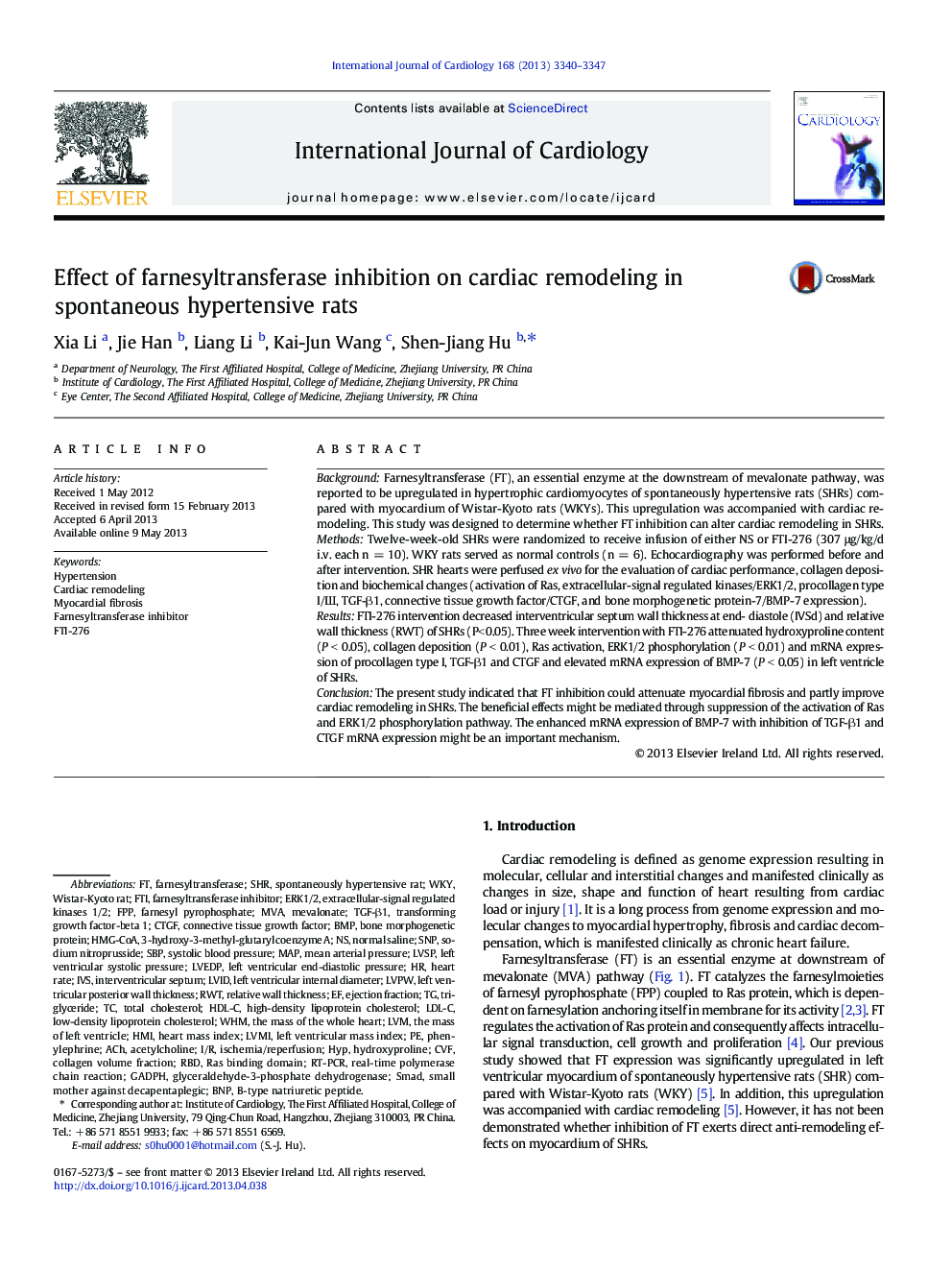| Article ID | Journal | Published Year | Pages | File Type |
|---|---|---|---|---|
| 5973624 | International Journal of Cardiology | 2013 | 8 Pages |
BackgroundFarnesyltransferase (FT), an essential enzyme at the downstream of mevalonate pathway, was reported to be upregulated in hypertrophic cardiomyocytes of spontaneously hypertensive rats (SHRs) compared with myocardium of Wistar-Kyoto rats (WKYs). This upregulation was accompanied with cardiac remodeling. This study was designed to determine whether FT inhibition can alter cardiac remodeling in SHRs.MethodsTwelve-week-old SHRs were randomized to receive infusion of either NS or FTI-276 (307 μg/kg/d i.v. each n = 10). WKY rats served as normal controls (n = 6). Echocardiography was performed before and after intervention. SHR hearts were perfused ex vivo for the evaluation of cardiac performance, collagen deposition and biochemical changes (activation of Ras, extracellular-signal regulated kinases/ERK1/2, procollagen type Ð/Ш, TGF-β1, connective tissue growth factor/CTGF, and bone morphogenetic protein-7/BMP-7 expression).ResultsFTI-276 intervention decreased interventricular septum wall thickness at end- diastole (IVSd) and relative wall thickness (RWT) of SHRs (P< 0.05). Three week intervention with FTI-276 attenuated hydroxyproline content (P < 0.05), collagen deposition (P < 0.01), Ras activation, ERK1/2 phosphorylation (P < 0.01) and mRNA expression of procollagen type I, TGF-β1 and CTGF and elevated mRNA expression of BMP-7 (P < 0.05) in left ventricle of SHRs.ConclusionThe present study indicated that FT inhibition could attenuate myocardial fibrosis and partly improve cardiac remodeling in SHRs. The beneficial effects might be mediated through suppression of the activation of Ras and ERK1/2 phosphorylation pathway. The enhanced mRNA expression of BMP-7 with inhibition of TGF-β1 and CTGF mRNA expression might be an important mechanism.
